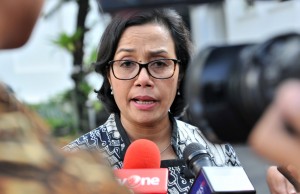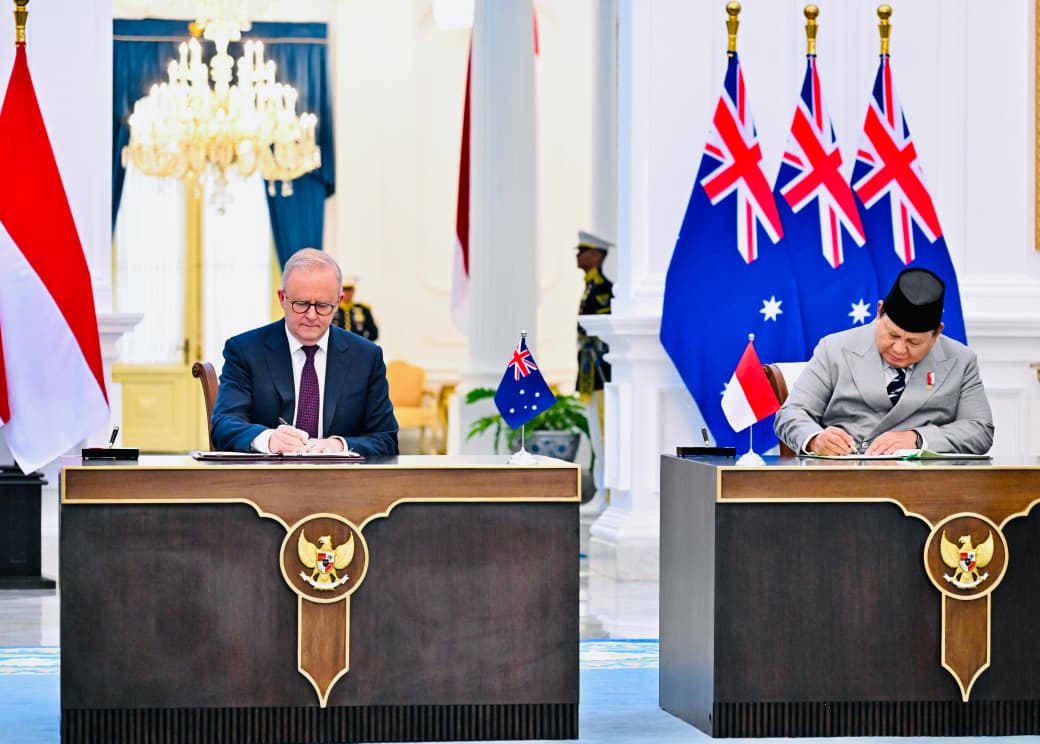Sri Mulyani Responds to MPR Speaker On Public Debt
Minister of Finance Sri Mulyani Indrawati responded to the statement made by Speaker of Peoples Consultative Assembly (MPR) Zulkifli Hasan delivered during the Assemblys Annual Session Last Thursday (16/8). At that time, Zulkifli slammed the Government, who needs to pay Rp400 trillion principal debts in 2018, 7 times higher than the budget allocated for Village Fund and 6 times higher than the budget allocated for health.
In response to this, Sri Mulyani argued that Zulkifli had delivered a misleading political statement. She explained that the Rp.396 trillion payment for 2018 principal debt is based on outstanding debt per December 2017.
“Forty four percent of the payment is for the debt made before 2015 before President Jokowis administration-. The current speaker of MPR was a member of the cabinet at that time, ” Sri Mulyani wrote on her Facebook fan page. She added that 31.5% of the principal debt payment is to pay Treasury Bill/Sharia Treasury Bill (SPN / SPN-S) which are instruments for managing cash flow with less than one year tenor.
“The payment is a consequence from the debt made in the past, why does it now become a fuss?” Sri Mulyani asked.
Regarding the comparison of data submitted by Zulkifli, Sri Mulyani explained the following:
- The total payment of Indonesia’s principal debt in 2009 was Rp117.1 trillion, while the health budget was Rp25.6 trillion, meaning that the ratio of principal payment to health budget back then was 4.57. In 2018, the principal payment was Rp396 trillion while the health budget was Rp107.4 trillion, meaning that the ratio fell to 3.68.
“It means that the ratio has dropped by 19.4% in 9 years,” the Minister said.
In 2019 the health budget increased to Rp122 trillion or 4.77 times the budget in 2009, and the ratio will significantly drop 26.7%. In addition, the health budget is not only allocated to Ministry of Health, but also to other public health programs, including the Special Fund (DAK) for Health and Family Planning.
The increase in the health budget has quadrupled from 2009 to 2018, indicating the administration under President Jokowi is very concerned about and is prioritizing the improvement of human capital.
- Regarding the comparison of principal debt payment with Village Funds, Sri Mulyani explained that since the Village Fund was only started in 2015, it will be better if the Village Fund is compared to the 2015 principal debt payment, meaning that the ratio is 10.9. In 2018 the ratio dropped 39.3% to 6.6, and in 2019 it will drop to 5.7.
“It means that the increase in village funds is much higher than the increase in principal debt payment,” the Minister said, stressing that the general trend is a lower ratio of principal debt payment.
For the record, the Government continues to prudently and accountably manage debt, reflected by the fact that the deficit of the State Budget is always maintained below 3% per GDP in accordance with the State Finance Law.
The State Budget deficit continues to drop from 2.59% per GDP in 2015, to 2.49% in 2016, 2.51% in 2017, 2.12% in 2018 (estimated) and 1.84% in 2019 (estimated, according to the speech of the President before the House of Representatives).
“This is undeniable evidence that the Government is prudent and continues to maintain the risk of state finance professionally and credibly. This is because what we risk is the economy, welfare and livelihood of Indonesian people, ” Sri Mulyani said.
The primary balance deficit also sought to decrease and lead to a surplus. In 2015 the primary balance deficit was Rp142.5 trillion, in 2017 it was Rp129.3 trillion and in 2018 it dropped to Rp64.8 trillion (based on the outlook of 2018 State Budget). In 2019 the primary balance deficit is estimated to drop to Rp21.74 trillion.
“It shows the Government’s prudence in safeguarding the country’s finance to face a volatile global situation,” Sri Mulyani said.
The growth of the State Budget financing through debt in 2015-2018 is negative, meaning that additional debt continued to be reduced and tax revenues and non-tax revenues are increased. In 2015 the growth of debt financing is 49.0% (since the Government was safeguarding the economy from the pressure of falling prices of oil and other commodities) while in 2018 the growth of debt financing is negative 9.7%.
“It shows that the Government is serious in continuously improving the quality of the State Budget and is very prudent in managing the State Budget and debt policy, Sri Mulyani stated, adding that as a result, the Government has received investment grade from several global rating agencies since 2016.
Sri Mulyani further said that the State Budget is an instrument to achieve the ideals of the state and to create a just, prosperous and independent society. The commitment and credibility of the State Budget management, she said, has been proven in the Government’s track record.
Finally, Minister of Finance invites all to educate the people with noble politics based on correct and accurate information.
(ES) (RI/EP/Naster)









